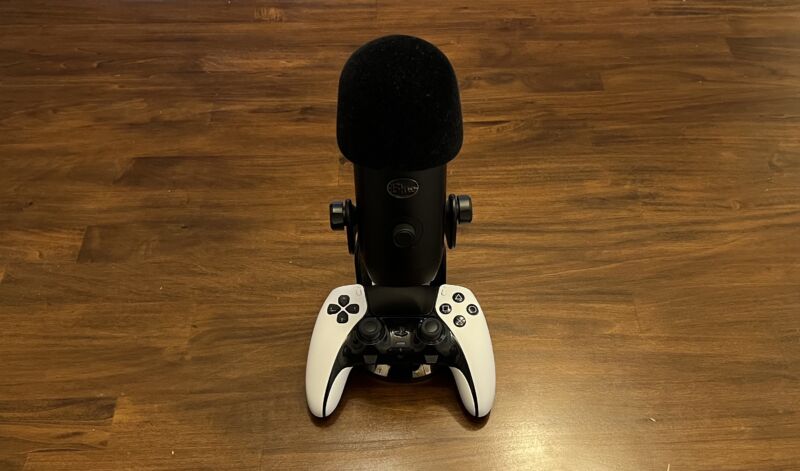
This week, Sony rolled out Discord voice chat support for PlayStation 5 consoles, marking the first time a third-party OS-wide game voice call option has been available on Sony’s consoles.
Previously, PlayStation 5 users could display what game they were currently playing on their Discord profiles, but they couldn’t communicate with other players without using their phones, tablets, or computers.
The rollout follows a similar one on Microsoft’s Xbox consoles last fall. Discord voice calls had long been available on PC, Mac, iOS, and Android. The only major gaming platform outlier is Nintendo’s Switch.
With PC, Xbox, and PlayStation support, Discord is poised to be the go-to voice-over-IP service for cross-platform multi-player games, which have started to progress toward ubiquity for the first time over the past couple of years.
That’s great for Discord as a platform and company, of course—and it would be great to see competing services follow so Discord doesn’t have a monopoly on this kind of functionality.
That said, though, even having just one service achieve this is a big boon for cross-play advocates and a sign that the landscape for multiplayer gaming is very different from the previous console generation.
The cross-play dream
Players of online games have been asking for the ability to play with their friends on different platforms for at least two decades, but it has been a long, rocky road to get to the point that the dream is anything close to reality.
There have been some outliers over the years, of course. The Sega Dreamcast, which launched way back in 1998, took a couple stabs at cross-play, with game developers working with Microsoft to connect Dreamcast and Windows PC players in games like Quake 3 Arena and Phantasy Star Online.
Not too long afterward, Final Fantasy XI made headlines in 2002 by offering cross-play between PlayStation 2 and PC players.
Valve President Gabe Newell famously attended Sony’s E3 press conference to announce that Portal 2 would come to the PlayStation 3 and that it would feature cross-play with PC. That’s how I played Portal 2‘s co-op mode; I played on PS3 with a friend who was playing on Steam on his gaming PC.
And Microsoft has spent many years gradually expanding cross-play options between Xbox consoles and Windows PCs in games like Minecraft or the Forza franchise.
But until very recently, cross-play between console platforms was practically nonexistent. Whichever console platform was the leader in sales in a given generation had a strong disincentive to support it. If Sony allowed PlayStation 4 players to play with their friends on Xbox One, some of the snowball effect of a console’s market dominance was reduced, as there was less social drive to purchase a PS4 instead of an Xbox One. The same went for Microsoft’s (at least initially) dominant Xbox 360 and the lower-performing PS3.
To break this, it eventually took a game so huge, so popular, so ridiculously zeitgeist-y that even in its uber-dominant position of the past several years, Sony had no choice but to acquiesce: Epic Games’ Fortnite. The game’s popularity combined with Epic chief Tim Sweeney’s controversial, outspoken activism and Microsoft’s calculated efforts to undermine Sony’s position with consumer-oriented messaging and policies bullied Sony into changing its tune.
To be clear, though, it wasn’t all resolved for developers and players in that moment; it was later revealed that Epic had to pay Sony to offer cross-play in Fortnite to offset Sony’s related losses.
Fortnite wasn’t the first and only cross-play title, but it opened the floodgates like never before. While Sony didn’t provide all developers with easy-to-use tools and APIs for facilitating cross-play, it did start playing nice-ish with a growing roster of developers who had the power to insist, notably including Activision with Call of Duty.
Now, more games than ever—big and small—are making cross-play happen, even between the PlayStation and Xbox. It’s still not the majority of new games, but the trend is headed in that direction.
https://arstechnica.com/?p=1922762

